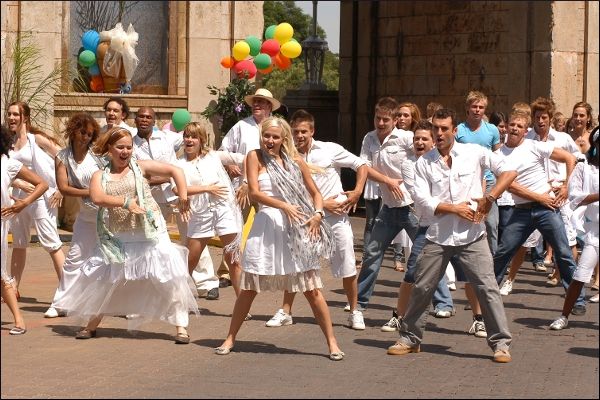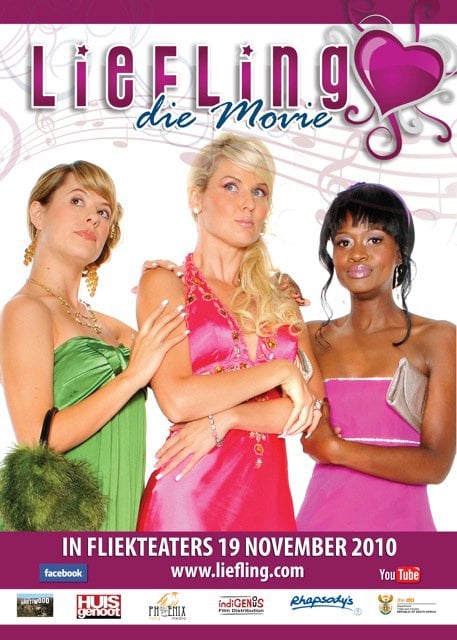The term “liefling” has no direct translation in English and is considered a term of endearment when used by members of a couple in love, like “sweetheart” in English. In 1965, singer, actor, and opera tenor Gé Korsten wrote a song called “Liefling,” and through the decades it has been played at major rugby matches and social occasions, thereby remaining timeless to South Africans. Korsten’s suicide in 1999 shocked the nation to the core, and this romantic musical film, also called Liefling and released in 2010, is dedicated to this true South African legend.
It begins with a childhood recollection, as Marlouise Vente begins singing one of South Africa’s all time favorite songs, “Kinders van die wind” ("Children of the Wind," originally sung by Laurika Rauch in 1979). As it plays, we are brought to the present time with Rouel Beukes finishing the last verse (both Vente and Beukes are well-known South African singers), after which he philosophizes that eventually someone special will come along and grant unconditional love.
"The term 'liefling' has no direct translation in English and is considered a term of endearment when used by members of a couple in love, like 'sweetheart' in English."
We then leap to a high school, where students celebrate the coming of December holidays by performing a modern hip-hop dance, singing the new Kurt Darren rendition of the classic “Staan op” (Stand Up). Liefling becomes more than just a romantic musical, as it revives old Afrikaans hits through the ages, some dating back to the mid 60s. These songs make up a narrative, as we hear the thoughts and feelings of the characters expressed through music and dance. The movie’s soundtrack has become a top seller at our local Look & Listen stores nationwide, and it is clear why: it consists of South Africa’s top current artists as well as appearances by some of the country’s classic singers.

The plot tells a typical love story: boy meets and likes girl, but another pretty girl likes him and is willing to do anything to destroy his new-found love. The male lead is played by Bobby van Jaarsveld, who released his first solo album during his “matric” school year (short for “matriculation,” meaning the last year of high school) and he has since released six albums, becoming one of South Africa’s most popular artists. Lika Berning, better known for her TV roles, plays the main character Liefling Marais.
"Liefling is a feel-good sing-along movie that portrays how love can conquer all and further reflects how music has remained timeless through the ages."
A few interesting locations appear in the movie. When Liefling sings “Lang maer blonde man” (Tall Thin Blonde Man), Liefling and Jan visit rock pools, play with elephants and monkeys, and receive massages. This is the beauty of Johannesburg, where in less than an hour’s drive, one can visit all these places in South Africa and experience the wildlife firsthand. During the song “Jakkals trou,” we can see the concertina being played, a unique South African musical instrument akin to an accordion, which helped transform “boeremusiek” into what it is today. The thunderstorm seen in the next scene is a common phenomenon in the Gauteng province, hence the song’s title being based on an old Afrikaans idiom, “Jakkals trou met wolf se vrou as dit reën en die son skyn flou,” which literally means: “The jackal is marrying the wolf’s wife when it rains and the sun shines faintly,” referring to what in English are known as sun showers.
All in all, Liefling is a feel-good sing-along movie that portrays how love can conquer all and further reflects how music has remained timeless through the ages.





